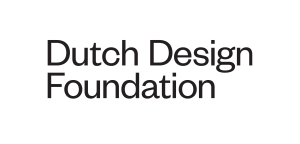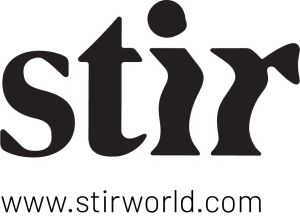Earlier this year Initiate (the innovation program of the dutch municipality association Vereniging Nederlandse Gemeenten) launched ‘What if Lab: local government meets design’, a project that connects designers with social issues that municipalities are facing nowadays. The topics designers were invited to think about are e-Health, Smart Mobility and Digital Transition. The goal is to generate unorthodox solutions to solve the issues that our governments oppose. This time without the usual extensive policy documents, focusing on direct cooperation that aims for practical results.
In April, a call within all municipalities in the Netherlands was made in order to identify the social issues that are currently topical. From the results, one case was selected per topic to start working on. The authors of these cases - people that deal with these issues in their daily practice - continue to be involved during the project in the role of ‘the client’.
In collaboration with Dutch Design Foundation, per topic three design studios were invited to think of a concept for a solution for these issues. On 29 June latest, all nine studios presented their concepts. After hearing these proposals, a jury consisting out of ‘the clients’, representatives of Initiate, Dutch Design Foundation and experts in the field of innovative healthcare, mobility and digital transition, has chosen one studio per topic to develop their idea into a prototype. The selected designstudio’s are De jongens van de TU on the topic of e-Health, Hannah van Luttervelt on Smart Mobility and Studio Tast on Digital Transition. The prototypes they are currently working on, will be presented for the first time during ‘DemoDay’, that will take place September 14th 2017 from 12:00h until 15:00h at Dutch Design Foundation in Eindhoven.
After DemoDay there will still be some time left for fine-tuning until the projects are shown to the general public, because during Dutch Design Week (21 t/m 29 October 2017) Initiate will present the What if Lab projects at Klokgebouw at Strijp-S in Eindhoven.
A full report by Initiate on the pitches that were held June 29th last for ‘What if Lab: local government meets design’ is available here.
E-Health
In the category of e-Health, pediatrician Karin Ruiter posed the question on how we can help obese children to change their lifestyle and also stick with this healthier way of living. De Jongens van de TU’s idea for a serious game appealed to the jury the most. The game should motivate the children and give them the confidence they can do it in a positive and accessible way. Rhys Duindam, of Jongens van de TU: “The E in E-health is for ‘empowering’: strengthening by a technological solution.” By offering challenging activities in the game that can be done in real life, the screen turns out to be the key to actually get the child away from the screen. This is also done by giving certain ‘challenges’ that require the kids to go outside. On certain spots in the neighbourhood, QR-codes can be found that for instance give instructions for a game that can be played outside. The point is not to reach a certain level, but to get active in the first place. If too little action is noted, this could be a good starting point for a coach or parent to try to change course.
Smart Mobility
Regarding Smart Mobility, the municipality of ’s-Hertogenbosch and Weener XL (organisation for sheltered workshops in and around ’s-Hertogenbosch) are both looking for a simplification of the existing transport system for their target groups. Hannah van Luttervelt was selected to get started on this issue. Her concept connects people with transport needs to a driver. This driver could also be a colleague, who doesn’t mind driving around the block in order to make this carpool system work. Via an app, people can get in touch with each other. This app also tracks all the driven rides on a map of the area. The jury saw many advantages in the reciprocity of the system and the personal communication between the drivers and riders. Charming asset: combining the tracks of all rides, this creates an interplay of lines that can also exist outside the screen as a work of art with autonomous value.
Digital Transition
The challenge in the Digital Transition category is posed by Shaun Figaroa: he wants youngsters to get more insight into their own finances an try to get them in the mood to even start saving some money. From his own experience as a youth worker he knows that talking about money is still taboo. For What if Lab, Shaun teams up with Mitchell Jacobs of Studio Tast to develop the “Stack je Money” app. Mitchell: “Money is hardly tangible these days and sometimes the underlying technology is hard to understand. We think that money can be a vehicle for youngsters in order to grow and to live out their dreams. But that requires them to have some insight in the way their ‘money world’ works.” Shaun and Mitchell’s plan consist of an app that gives the youngsters a very clear visual overview of their incomes and expenses (for instance grouped per shop). There is also a part in the app that provides tips&tricks and a part in which saving goals can be entered. The ‘game changer’ makes it possible to fictitiously shuffle expenses to see what impact they have on the feasibility of these saving goals, without it having impact in reality.










